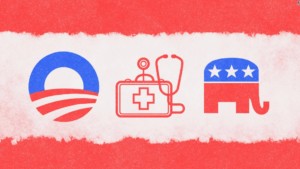
Mar 23, 2015
By Jane M. Orient, M.D.
This week Congress will, for the 18th time, decide whether to cut doctors’ Medicare fees across the board, according to the Medicare Sustainable Growth Rate, “SGR”, formula (the Clinton-Gingrich sustainable growth rate). This was enacted in 1997 as part of the Balanced Budget Act. It has been postponed 17 times because of the threat that seniors would lose access to medical care. And with each delay, the threatened future cut gets bigger. On March 31, the cut will be 21%, if it happens. Since doctors’ expenses consume at least half of what comes in, that would mean a cut of at least 50% in doctors’ pay. Some would lose money every time they saw a Medicare patient.
Every year there’s a call for a permanent “doc fix,” a “repeal and replace.” It could happen this year, with a bipartisan Boehner-Pelosi scheme. This would also cut the number of services rendered to Medicare patients, but it would supposedly make things better because we’d be paying for “value, not volume.” The Medicare bureaucracy would determine value.
“Alternate payment models” involve things like practice improvement activities, population management, care coordination, and beneficiary engagement. These require a lot of electronic data collection on “quality metrics.” Independent doctors probably can’t figure out how to do all these new tasks. But getting rid of such doctors, and fee-for-service payment, is part of the plan. The theory is that if doctors get paid more when patients stay healthy, and lose money on treating the sick, this new incentive structure will result in both better health and less spending.
End-of-life counseling—guiding patients’ decisions on what care they don’t want as they near the end—is a key part of improving the average health of the population, while lowering the average age.
The changeover will cost a lot of money up front, but is calculated to save money later. In the meantime, Congress has to calculate how to pay for $200 billion cost of SGR repeal. Proposals are to charge rich seniors more for their Medicare benefits, put limits on Medigap coverage, and let the budget deficit increase, temporarily of course.
The bipartisan replacement might be derailed by fiscal conservatives, or by Senate Minority Leader Harry Reid. His concern is that something in the plan will put more constraints on the provision of abortion services through federally qualified community health centers.
While the American Medical Association is sending out its annual pleas to repeal or postpone the dreaded SGR, the Association of American Physicians and Surgeons (AAPS) is saying once again: Let the SGR happen. Medicare spending absolutely has to be cut—or else all the government checks will soon bounce. The proposed alternative payment system (nonpaymeny for work) is far worse.
Do we want seniors to have access to care? Absolutely. For that, we need to repeal the cause of the problem of poor access combined with high cost: the Byzantine Medicare price controls. Repeal the ban on billing more than dictated by the Resource-based Relative Value Scale (RB-RVS), which rewards system gaming and punishes individualized care. Then seniors will be able to obtain care that they value, but which is unavailable when nobody can pay an adequate price. Patients would also stop getting care that is now “free” to them but not worth paying for. Congress knows they will, and has essentially admitted as much in calling for copayments with Medigap.
Will patients sometimes skimp on care they should have—as well as care for which some providers collect plenty of money? Probably so. The key is that value would be value to the patient, not to ObamaCare’s Independent Payment Advisory Board, or William Hsaio (Harvard’s RB-RVS architect), or the AMA’s relative value-setting committee, or mammoth healthcare systems, or preferred technology vendors.
Patients are likely to value care that extends their life or improves their comfort or ability to function. They probably don’t care that their continued living lowers the population health average. They are likely to prefer paying doctors for a service to paying an accountable care organization for withholding services.
The SGR cut combined with restoring free-market pricing signals is a golden opportunity for true reform.


